Medicine For UTI Female


Medicines for female Urinary Tract Infections (UTIs) are mainly prescribed to control and cure urinary infections caused by harmful bacteria. These infections usually affect the bladder, urethra, or kidneys, leading to painful and uncomfortable symptoms. Urine infection medicine for female patients includes antibiotics, pain relievers, and supportive supplements that help manage the condition effectively. These medicines work by stopping bacterial growth, killing infection-causing germs, flushing them out of the urinary tract, and reducing discomfort. Common symptoms such as burning during urination, frequent urge to urinate, cloudy urine, or pelvic pain can be managed with the right treatment. With timely use of the right medicine for UTI in women, complications can be avoided, and the infection can be fully cured. Along with prescribed medicines, preventive options such as probiotics, cranberry extracts, and proper hydration can also help reduce recurrence and promote better urinary health.
List of Generic Medicines For Female UTIs
| Medicine | Description |
|---|---|
| Nitrofurantoin | Nitrofurantoin is a first-choice antibiotic for uncomplicated UTIs in females. It is usually prescribed for 5–7 days and works best when taken with food. It prevents bacterial growth in the urinary tract and is not recommended for women with severe kidney problems. |
| Trimethoprim/Sulfamethoxazole | This antibiotic combination is widely used for short-term UTI treatment. Usually taken for 3–5 days, it effectively clears bladder infections. It may not be prescribed in areas with high resistance or in patients with sulfa drug allergies. |
| Fosfomycin | Fosfomycin is a single-dose antibiotic for uncomplicated UTIs. It works by stopping bacteria from forming cell walls. Convenient for women who cannot tolerate longer courses, it improves compliance and has fewer side effects compared to multi-day antibiotics. |
| Cephalexin | Cephalexin, a cephalosporin antibiotic, is often prescribed for mild to moderate UTIs. It disrupts bacterial cell wall formation and is taken for 5–7 days. Generally safe, though it may cause mild stomach upset or diarrhea in some women. |
| Amoxicillin-Clavulanate | This combination antibiotic is used when other UTI medicines are less effective. Amoxicillin kills bacteria, while clavulanate prevents resistance. Taken twice daily for 5–7 days, it may cause diarrhea or stomach upset. Always take it under medical supervision. |
| Ceftriaxone | Ceftriaxone is an injectable antibiotic given in hospitals for severe UTIs or kidney infections. It works quickly and may be followed by oral antibiotics. Common effects include mild pain at the injection site or stomach issues. |
| Ciprofloxacin | Ciprofloxacin is a fluoroquinolone antibiotic used in resistant or complicated UTIs. It works by blocking bacterial DNA replication. Due to risks like tendon damage or nerve issues, it is reserved for serious infections and must be doctor-prescribed. |
| Levofloxacin | Levofloxacin is another fluoroquinolone used for complicated UTIs. It is highly effective against resistant bacteria but avoided in simple cases due to possible side effects. Treatment lasts 5–10 days depending on severity. |
| Phenazopyridine | Phenazopyridine is a urinary analgesic that relieves burning, urgency, and discomfort during UTIs. It does not treat infection but provides comfort while antibiotics work. It may turn urine orange-red, which is harmless. |
| Paracetamol (Acetaminophen) | Paracetamol helps reduce fever and pain linked with UTIs. While it does not cure the infection, it provides symptom relief. Safe in most women but overdose can damage the liver. Always follow dosing instructions. |
| Ibuprofen | Ibuprofen reduces fever, pain, and inflammation associated with UTIs. It works by blocking pain-causing chemicals. Prolonged use can irritate the stomach or kidneys, so it should be taken only in recommended doses. |
| Cranberry Extract Supplements | Cranberry supplements may help prevent UTIs by stopping bacteria from sticking to the bladder walls. Available as juice, tablets, or capsules, they are best for prevention rather than active treatment. Consult your doctor if you take blood thinners. |
| D-Mannose | D-Mannose is a natural sugar that prevents bacteria like E. coli from attaching to the urinary tract. It is safe for long-term use and often recommended as a preventive supplement for women with recurrent UTIs. |
| Probiotics | Probiotics help restore healthy vaginal and gut bacteria, lowering UTI risk. Lactobacillus strains are especially effective for urinary health. Available as capsules, yogurt, or fermented foods, probiotics are safe for long-term daily use. |
| Vitamin C | Vitamin C boosts immunity and acidifies urine, making it harder for bacteria to grow. It is often used alongside antibiotics or as preventive care. High doses may upset the stomach, so use recommended levels only. |
Urine Infection Medicine for Female
Antibiotics Urine Infection Medicine for Female
Antibiotics are the first line of treatment to kill infection-causing bacteria in the urinary tract. The choice depends on symptoms, culture report, local resistance patterns, kidney function, allergies, and pregnancy status. Always complete the full course as prescribed to prevent recurrence and antibiotic resistance.
Nitrofurantoin
Nitrofurantoin is a first-choice antibiotic for uncomplicated UTIs in females. It works by stopping bacterial growth in the urinary tract. It is usually prescribed for 5–7 days and is most effective when taken with food. Not recommended for severe kidney problems or advanced infections. Follow your doctor’s directions.
Trimethoprim/Sulfamethoxazole
This antibiotic combination is widely used for short-term UTI treatment in women. It effectively clears bacterial infections in the bladder and urinary tract. Generally taken for 3–5 days, it works best in uncomplicated infections. It may not be prescribed if local bacterial resistance is high or if you have allergies.
Fosfomycin
Fosfomycin is a convenient, single-dose antibiotic for simple UTIs. It works by preventing bacteria from building protective cell walls. It is often prescribed to women who need quick treatment or cannot tolerate longer antibiotic courses. The single-dose regimen reduces side effects and improves treatment compliance for many patients.
Cephalexin
Cephalexin is a cephalosporin antibiotic that treats mild to moderate UTIs. It works by disrupting bacterial cell wall formation, leading to bacterial death. Doctors usually prescribe it for 5–7 days. It is considered safe for most patients but may cause stomach upset or mild diarrhea in some individuals.
Amoxicillin-Clavulanate
This broad-spectrum antibiotic is prescribed when other UTI antibiotics are less effective. Amoxicillin kills bacteria, while clavulanate prevents bacterial resistance. It is usually taken twice daily for 5–7 days. Common side effects include diarrhea, nausea, or stomach upset. Always take it under medical supervision and finish the course.
Ceftriaxone
Ceftriaxone is an injectable antibiotic used for severe or complicated UTIs, including kidney infections. It is often given in hospitals for faster action, sometimes as a single dose before switching to oral therapy. Treatment duration varies by severity. Possible effects include injection-site discomfort and mild gastrointestinal symptoms.
Ciprofloxacin
Ciprofloxacin is a fluoroquinolone antibiotic used in recurrent or complicated UTIs. It stops bacterial DNA replication, quickly controlling infection. Because of potential side effects like tendon pain or nerve issues, it is usually reserved for resistant cases. Must be doctor-prescribed and taken exactly as directed for safety.
Levofloxacin
Levofloxacin is another fluoroquinolone option for severe UTIs. It is effective against many resistant bacteria but is generally avoided in simple cases due to possible adverse effects. It blocks bacterial DNA synthesis. Doctors prescribe it for 5–10 days depending on infection severity and patient-specific health considerations.
Pain Relief Urine Infection Medicine for Female
Pain relievers do not cure the infection but ease burning, urgency, pelvic pain, and fever while antibiotics work. Use them only as advised, for short durations, and avoid exceeding recommended doses. Report persistent pain, high fever, back pain, or nausea to your doctor to rule out kidney involvement.
Phenazopyridine
Phenazopyridine is not an antibiotic but helps relieve symptoms like burning, urgency, and frequent urination. It soothes the urinary tract lining and provides quick comfort. It can turn urine a reddish-orange color, which is harmless. Use only for short-term relief along with prescribed antibiotics for best results.
Paracetamol (Acetaminophen)
Paracetamol reduces fever and pain linked to urinary infections. It does not treat the infection itself but provides comfort while antibiotics take effect. Generally safe when used at the correct dose, but overdose can harm the liver. Follow labeled dosing or your doctor’s advice, especially in chronic conditions.
Ibuprofen
Ibuprofen helps reduce pain, burning, and inflammation during UTIs. It also lowers fever in bladder or kidney infections. It works by blocking inflammatory chemicals. Long-term or excessive use may irritate the stomach or kidneys, so take the lowest effective dose for the shortest time under advice.
Supportive & Preventive Medicine for Female UTI
Supportive measures can lower recurrence risk and complement antibiotics. Adequate hydration, frequent urination, intimate hygiene, and avoiding irritants help. Supplements like cranberry, D-mannose, probiotics, and vitamin C may assist prevention. Always discuss with a healthcare professional, especially during pregnancy or when taking multiple medications.
Cranberry Extract Supplements
Cranberry supplements may help prevent UTIs, especially in women with frequent recurrences. Compounds in cranberries can reduce bacterial adhesion to bladder walls. While not a cure, regular use may lower infection risk. Available as juice, capsules, or tablets; choose standardized extracts and consult your doctor if on blood thinners.
D-Mannose
D-Mannose is a natural sugar that helps prevent E. coli from attaching to the urinary tract lining. Often used as a preventive supplement, it may reduce UTI recurrence in females. Generally well tolerated, it is available as powders or capsules. Discuss dosing and duration with your healthcare provider.
Probiotics
Probiotics restore healthy vaginal and gut flora, lowering UTI risk by keeping harmful bacteria in check. Lactobacillus strains are commonly studied for urinary health. Available in capsules, yogurt, and fermented foods, they are safe for most women. Consider daily use and choose clinically backed strains and CFU counts.
Vitamin C
Vitamin C supports immunity and can acidify urine, creating an unfavorable environment for bacterial growth. It is used as a supportive measure alongside antibiotics or for prevention. Obtain it from diet or supplements. High doses may upset the stomach; follow recommended intake or your doctor’s guidance.
List of Medicine For Urine Infection In Female India
| Medicine Name | Benefits |
|---|---|
| Nitrozee 100 SR Tablet | Treats and prevents bacterial infections of the urinary tract. Inhibits bacterial growth and kills them. |
| Bactrim DS Tablet | Treats various bacterial infections (female urinary tract infections), Faster recovery from the infection, and decreased risk of UTI-associated complications. |
| Sefjim 400 Antibacterial Tablet | Treats bacterial infection of the urinary tract, inhibits and kills the bacteria. |
| Levoziv 500 Tablet | Inhibits bacterial growth, kills the bacteria, supports the elimination of bacteria, and prevents the spread of infection. |
| Fosfozee Sachet | Treats urinary tract infections (UTIs), relieves symptoms (painful and frequent urination), used in cystitis (urinary bladder inflammation). |
Do not take any medicine without a doctor’s consultation. Self-medication can be harmful to your health
Best Antibiotic for UTI in Females
Finding the right urine infection tablet for female is important to relieve painful symptoms like burning urination, frequent urge to urinate, and discomfort. Doctors usually prescribe antibiotics that directly kill or stop the growth of bacteria. Below are some of the most commonly recommended UTI tablets and tablets for UTI in women.
Nitrozee 100 SR Tablet
This tablet for UTI contains Nitrofurantoin, a well-known antibiotic that is highly effective for uncomplicated urinary infections. It works by damaging the bacterial cell wall, preventing their growth, and eliminating them from the urinary tract. It provides quick relief from painful urination, burning sensation, and frequent urges, making it a first-line choice for female UTI treatment.
- Salt Composition: Nitrofurantoin (100mg)
- What it does: Stops bacterial growth and kills infection-causing organisms in the urinary tract.
- Best for: Uncomplicated urinary tract infections in females.
Bactran DS Tablet
This urine infection tablet for female combines Sulfamethoxazole and Trimethoprim, two powerful antibiotics that work synergistically to kill bacteria. It helps clear bladder and kidney infections quickly, reduces the risk of recurrence, and supports faster healing. It is widely prescribed for women with recurrent UTIs and ensures effective bacterial elimination.
- Salt Composition: Sulfamethoxazole (800mg) + Trimethoprim (160mg)
- What it does: Blocks bacterial protein production, stops growth, and clears infection.
- Best for: Recurrent or uncomplicated urinary tract infections in women.
Sefjim 400 Antibacterial Tablet
This antibiotic UTI tablet contains Cefixime, a third-generation cephalosporin antibiotic. It works by inhibiting bacterial cell wall synthesis, effectively killing harmful bacteria in the urinary tract. It is suitable for mild to moderate infections and provides relief from symptoms like pain, urgency, and burning sensation while urinating.
- Salt Composition: Cefixime
- What it does: Destroys bacterial cell walls and prevents further bacterial multiplication.
- Best for: Mild to moderate UTIs, especially bladder infections.
Levoziv 500 Tablet
A strong tablet for UTI, Levoziv contains Levofloxacin, a fluoroquinolone antibiotic. It is often used for more severe or resistant urinary infections. It works by stopping bacterial DNA replication, effectively killing the bacteria and preventing infection from spreading to the kidneys. It provides faster recovery for complicated UTI cases.
- Salt Composition: Levofloxacin (500mg)
- What it does: Prevents bacterial DNA replication, kills bacteria, and clears infection.
- Best for: Complicated UTIs or severe urinary tract infections in females.
Fosfozee Sachet
This urine infection sachet for female contains Fosfomycin, a modern antibiotic that works with a single-dose treatment. It inhibits bacterial cell wall synthesis, leading to rapid killing of bacteria. It is especially helpful for uncomplicated UTIs and is easy to take as a sachet dissolved in water, offering fast relief from painful symptoms.
- Salt Composition: Fosfomycin (3gm)
- What it does: Inhibits bacterial cell wall formation and kills bacteria with a single dose.
- Best for: Uncomplicated urinary infections requiring quick treatment in women.
Uses of Medicine For Female UTI
Female UTI medicines are used to target the bacteria that cause infection. They inhibit bacterial growth, kill the bacteria, and prevent their spread.
- Treat bacterial infections of the urinary tract (bladder, urethra, and kidney).
- Reduce symptoms (painful urination, frequent urination, urinary inflammation, and urgency).
- Kill or inhibit bacteria that cause the infection.
- Help recover faster and prevent complications like kidney infection.
What to Avoid?
If you have a urinary tract infection, you should avoid:
- Alcohol.
- Caffeine.
- Acidic foods (as they irritate the bladder and increase the symptoms).
- Feminine hygiene items (douches, powders, and sprays can increase the likelihood of infection).
Benefits of Female UTI Medicines
- Fast relief in symptoms (burning pain while urinating, and frequent urination).
- Treats urinary infections of the kidney, bladder, and urethra.
- Prevents complications (kidney infection and damage).
- Reduced risk of recurrence: Using UTI medicine decreases the likelihood of the infection occurring.
When to See a Doctor?
See a doctor if:
- You are diagnosed with a urinary tract infection.
- Your symptoms are severe and worsening.
- Over-The-Counter (OTC) medicines are ineffective in treating urinary tract infections.
- You observe blood in the urine.
- You have recurrent urinary infections multiple times a year.
- You suspect a kidney infection.
Summary
Urinary tract infection (UTI) medicines in females are antibiotics used to treat bacterial infections of the bladder, urethra, and kidneys. On-time treatment supports the relief of painful urination, frequent urination due to urgency, and worsening symptoms. Delaying therapy can result in kidney dysfunction and antibiotic resistance. Early detection and specific treatment can prevent antibiotic resistance and recurrent infections. Understanding signs, specific drug treatments, and maintaining proper hygiene are important aspects of prevention and recovery from urinary tract infections.
Frequently Asked Questions (FAQs)
Q: How do I confirm it’s a urinary tract infection?
A: When you feel symptoms such as painful urination, frequent urges to urinate, or blood in urine, it is a sign of a urinary tract infection.
Q: Is a prescription necessary for UTI medication?
A: OTC medicines treat mild symptoms of UTI; however, prescription medicines are required to control complete symptoms.
Q: How quickly does UTI medication start to work?
A: UTI medicines show improvement in symptoms within 24 to 48 hours after starting antibiotics.
Q: Can urinary tract infections be prevented without antibiotics?
A: Yes, but only mild UTIs can be prevented without antibiotics, or they may clear on their own. Severe infections require specific antibiotic treatment for prevention and control.
Q: What steps can I take to prevent UTIs?
A: Staying hydrated, urinating after sex, and maintaining good hygiene are important steps to prevent UTIs.
Nitrofurantoin (100mg)
Sulfamethoxazole (800mg) + Trimethoprim...

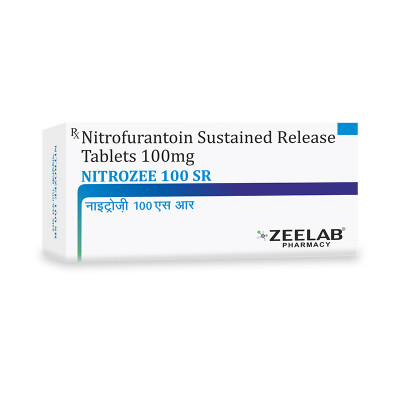
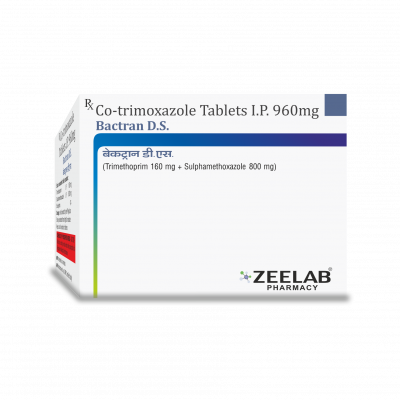

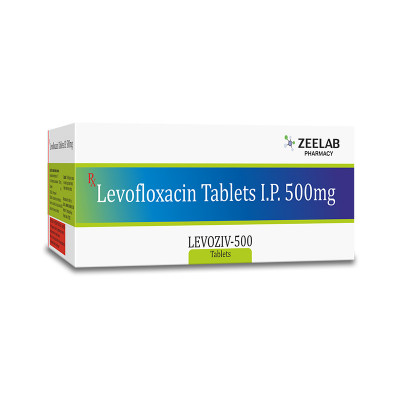
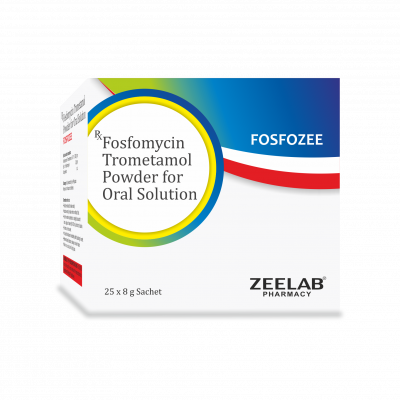
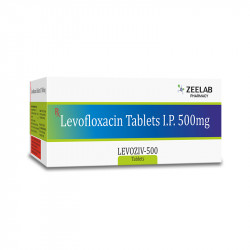


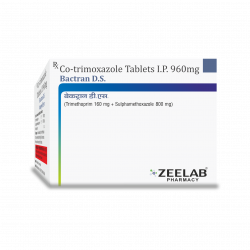
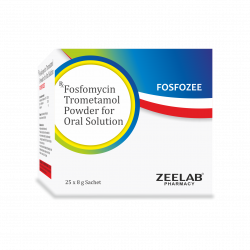








 Added!
Added!